What is Tencel? The semi-synthetic fiber that makes soft, silky sheets
I asked an expert panel of bedding designers to tell me more about Tencel – what it is, where it comes from, who it suits, and how much it costs
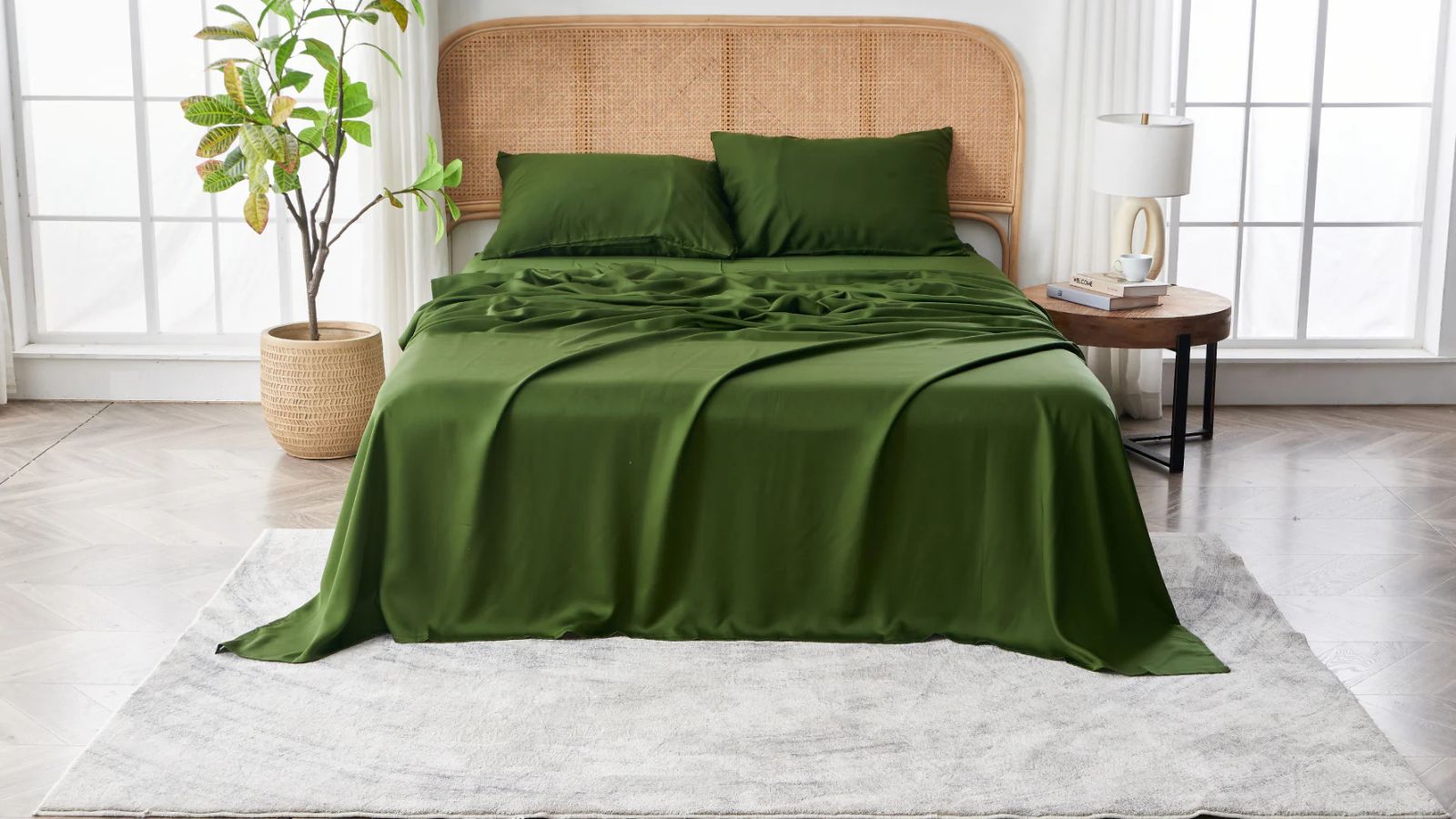

If you've ever tried shopping for sheets, whether in-store or online, you might have come across the term 'Tencel'. Perhaps you've scrolled past the word 'Tencel' as part of a product listing or read it printed on a care tag without fully understanding what it means.
In short, Tencel is a semi-synthetic material made from sustainably sourced eucalyptus wood pulp. Tencel is used in bed sheets for the same reasons that it's used in athleisure and activewear − because it's breathable, thermoregulating, and moisture-wicking. That's why Tencel is such a good option for hot sleepers.
As H&G's resident Sleep Editor, I lead a team of expert testers in the search to find the world's best bed sheets. Together, we've tested everything from crisp cotton percale to sumptuous bamboo sateen, including several Tencel sets. I consulted bedding designers to learn more about the pros and cons of Tencel and we want to share our hard-won wisdom with you.
What is Tencel? Your expert guide
If you're shopping for sheets, then you're in luck. I've spent hours scouring the sites of the best places to buy bedding to find the best Tencel sheet money can buy. For the sake of a fair fight, we assess each sheet set against the same criteria: look and feel; thermoregulation; and durability.
What is Tencel?
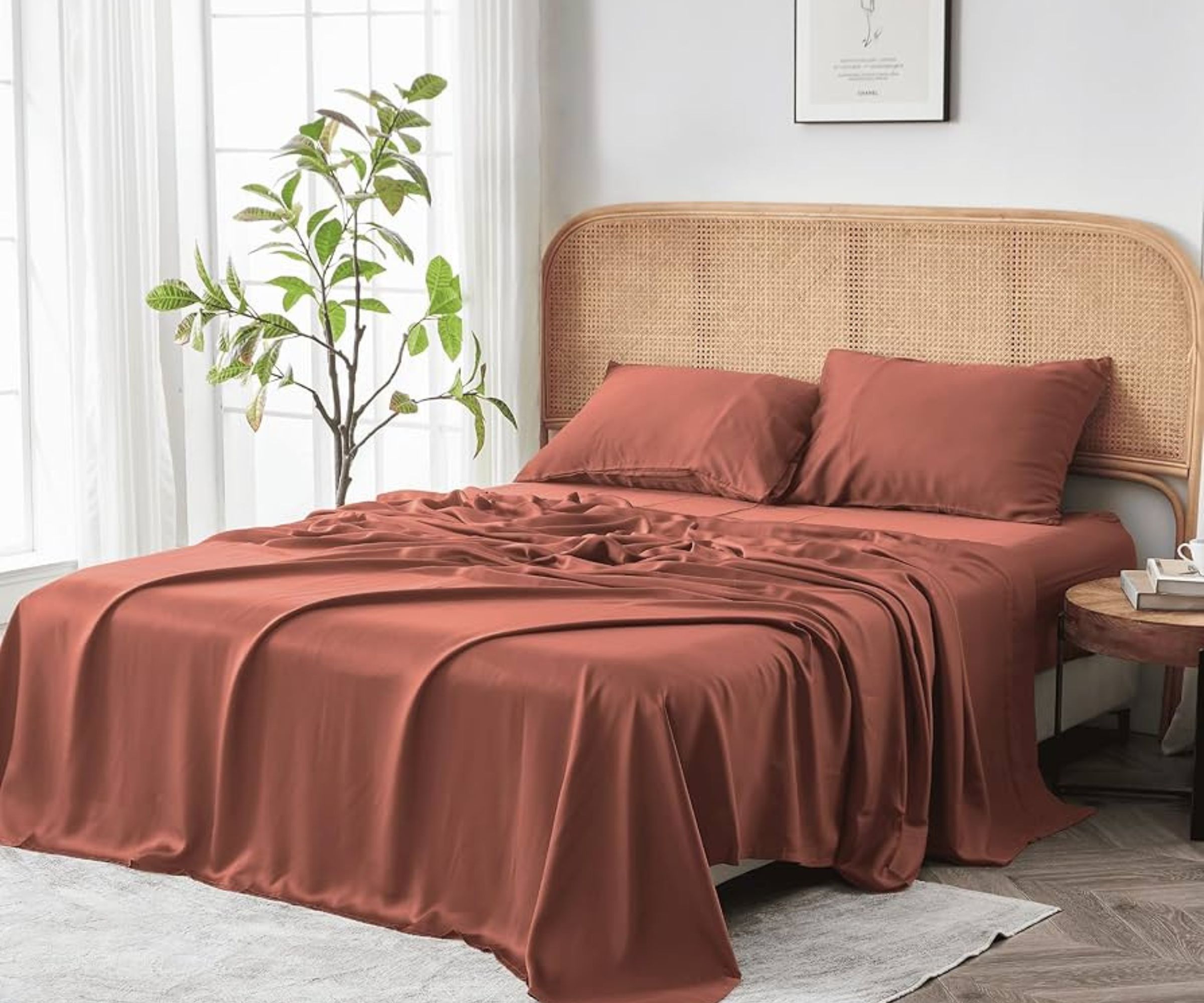
Tencel is not the name of a fiber, but a brand name or trademark for lyocell fibers. Anni Stromfeld, co-founder of sustainable bedding brand Sijo, explains that 'eucalyptus wood pulp is the primary component in the creation of lyocell, also known as Tencel.'
'Essentially, Tencel is a type of rayon, like viscose or modal,' adds Amanda Turner, Vice President of Product & Innovation at eco bedding brand ettitude. Rayon is a catch-all term for semi-synthetic fabrics made from regenerated cellulose that feel soft and silky against your skin.
Rayon often gets a bad rap for using toxic chemicals to treat the cellulose, but Anni says that 'the lyocell creation process is considerably more sustainable than viscose or modal. Making lyocell involves organic solvents and a closed-loop process to take the wood pulp and create fibers, which reduces solvent and water waste.'
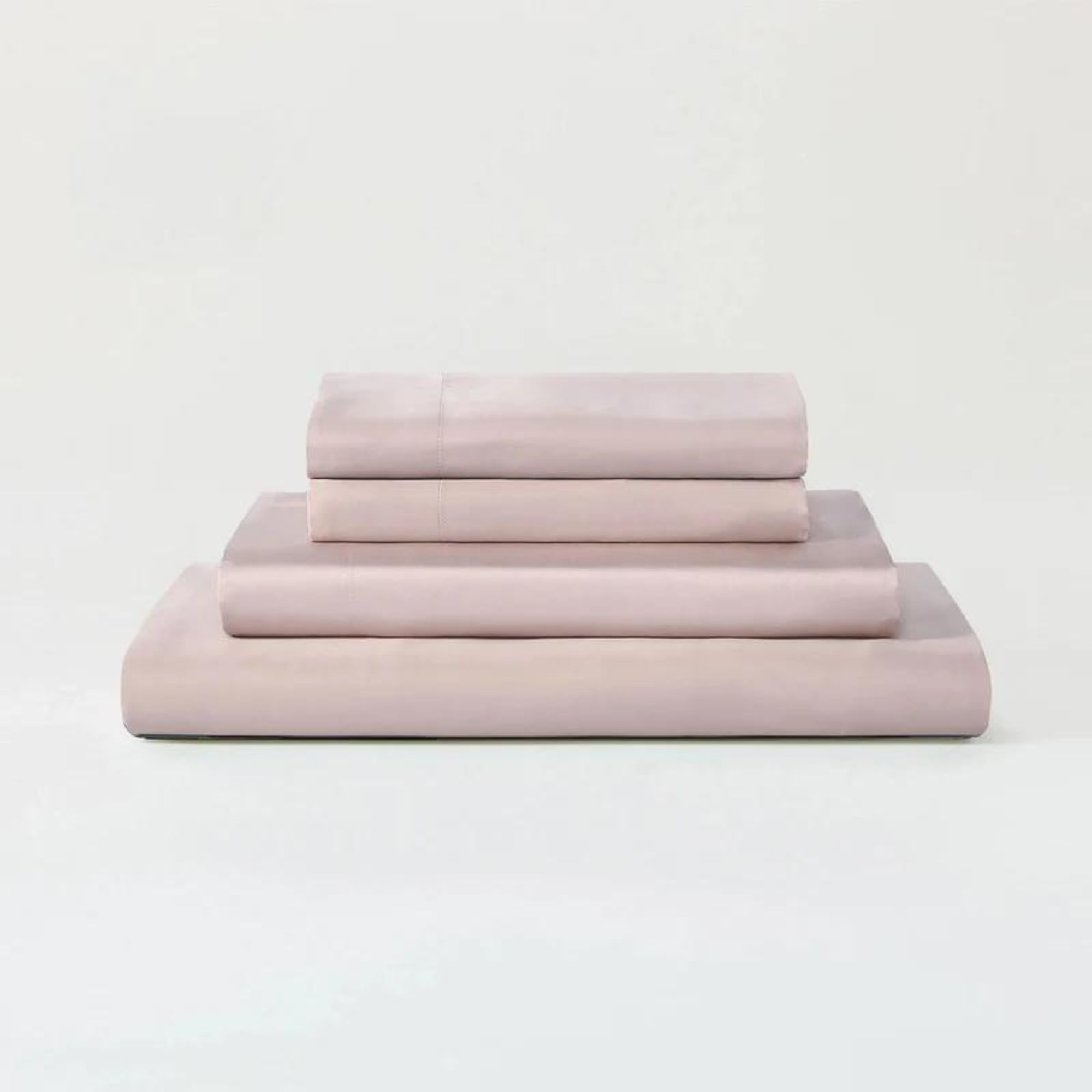
Sizes: Twin, twin XL, full, queen, king, California king
Material: 100% Tencel Eucalyptus
Colors: 7
OEKO-TEK certified: Yes
+ Cold to the touch
+ Great price
- Prone to wrinkling
These are some of the best cooling bed sheets on the market. High in quality, great in price, moisture-wicking and anti-microbial, they're the best bed sheets for hot sleepers who want to shop sustainably. They crease more than their bamboo counterparts but offer much cooler sleep thanks to an open weave and lightweight feel.
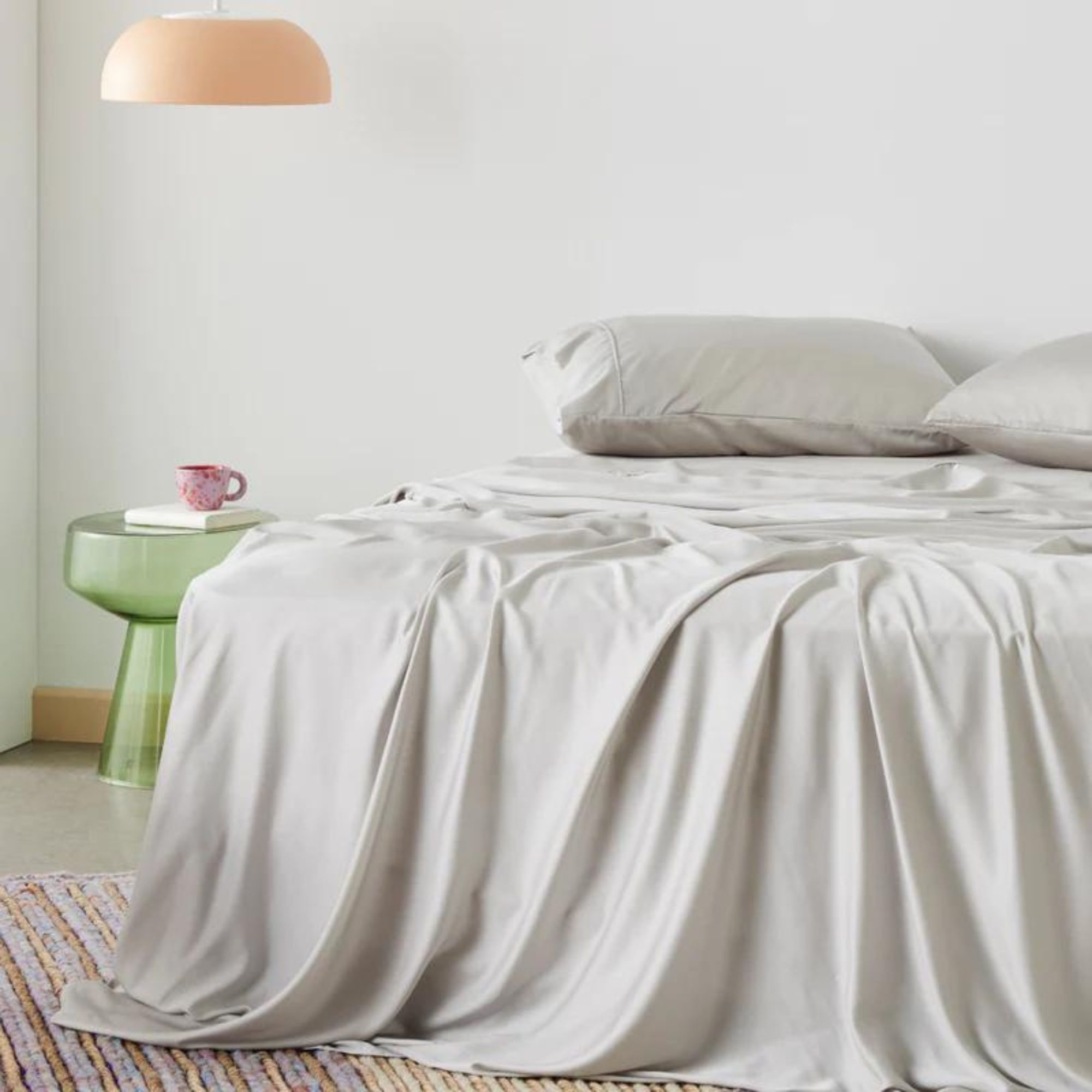
Sizes: Twin, twin XL, full, queen, king, California king
Material: Bamboo lyocell
Colors: 12
OEKO-TEK certified: Yes
+ Naturally cool to the touch
+ Stylish sateen finish
- Silky look isn't for everyone
This bed sheet set from ettitude isn't made from eucalyptus lyocell but rather bamboo. With similar smooth-to-the-touch properties and an ability to keep your temperature regulated, ettitude's sheets kept me cool and comfortable all night long. They have a slightly silkier appearance thanks to the sateen sheen, and look beautiful dressed on the bed.
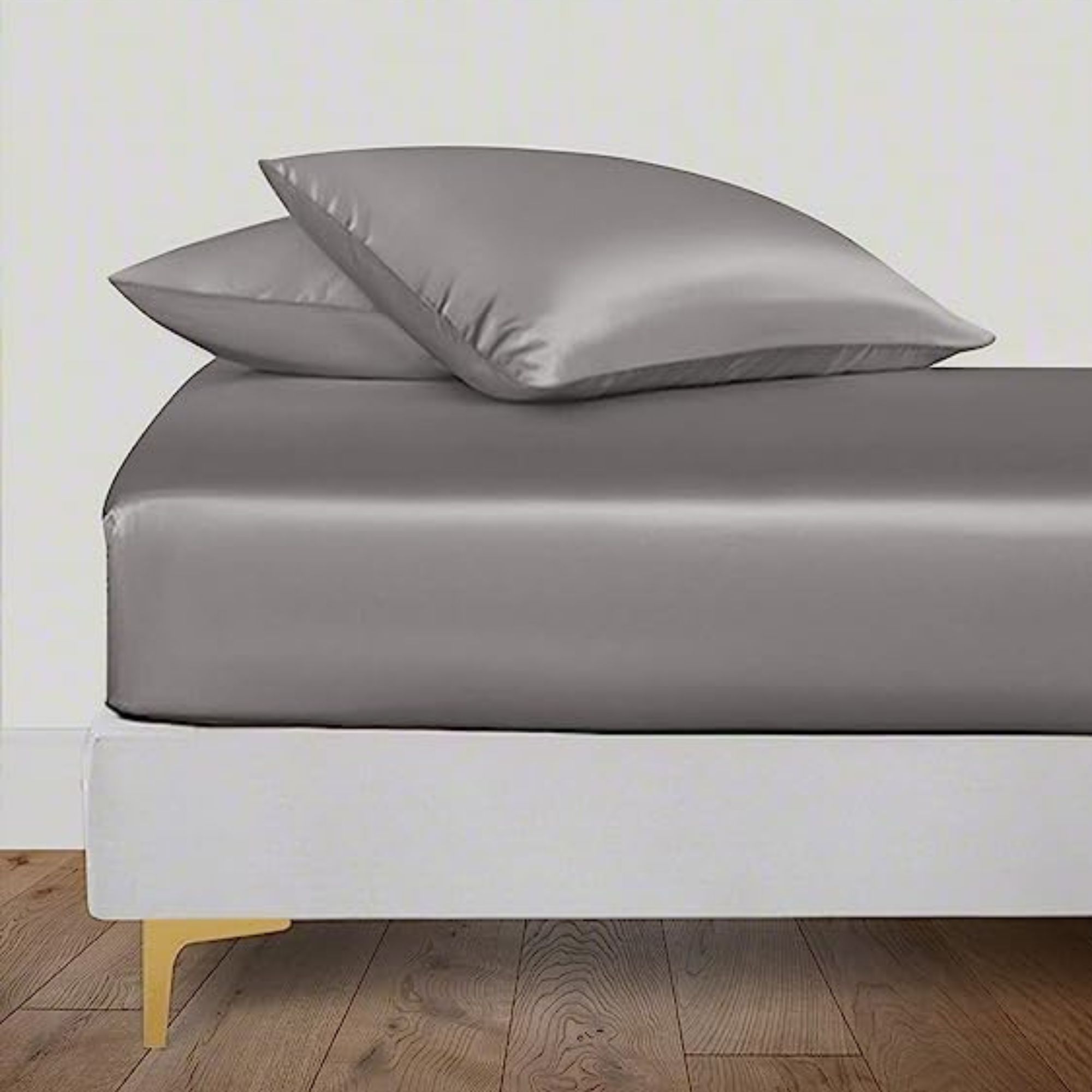
Sizes: Twin, twin XL, full, queen, king, California king
Material: 100% eucalyptus lyocell
Colors: 12
OEKO-TEK certified: No
+ Affordable
+ Super soft and silky
- Not as cooling as others
These affordable Tencel sheets from Linenwalas offer better sleep on a budget. Pure eucalyptus lyocell bedding can be expensive, but these bestsellers prove you don't have to overspend to enjoy the benefits of Tencel. I'm yet to try these myself but with over 1000 great reviews complimenting their quality, color, and comfort, I wouldn't be afraid to recommend these sheets. Many customers even say they wash well with little pilling, which is impressive for bedding you can buy from Amazon.
What are the pros and cons of sleeping on Tencel?
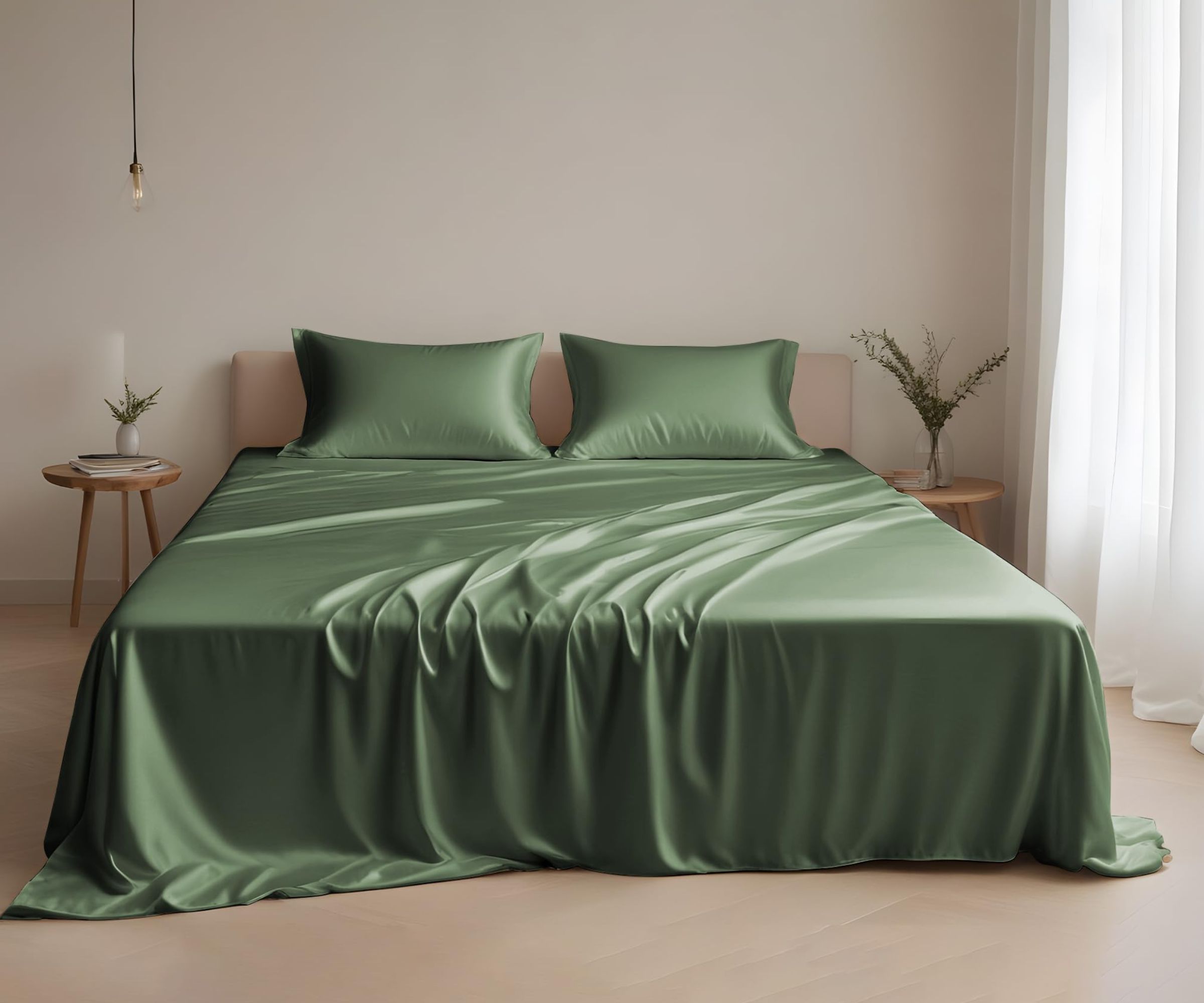
According to Amanda, 'Tencel requires less energy and water to make than conventional cotton, and manufacturing is closed-loop, promoting the reuse and recycling of materials.' That's good news for eco-conscious shoppers.
Whether you suffer from night sweats or hot flashes or you tend to run a little warm, you'll appreciate the cooling properties of Tencel. Much like bamboo, eucalyptus is naturally moisture-wicking and antimicrobial to kill the bacteria that breed in hot, damp environments, such as beds. In my experience, Tencel sheets feel truly cold to the touch, much more so than cotton percale or even bamboo. I slept on my Sijo sheet set through a heatwave: it was the only thing that could keep me cool.
Tencel feels silky and smooth, just the thing to create a dramatic drape over your bed. Still, if you like your bed sheets to have a little more texture, you might prefer a set of the best linen sheets. Linen has similar antimicrobial and moisture-wicking properties as Tencel, but it doesn't feel slippery in the same way.
FAQs
Is Tencel natural or synthetic?
Neither. Tencel is the brand name for lyocell, which is a semi-synthetic fiber. Found in nature and sustainably sourced from eucalyptus wood, Tencel is produced using a closed-loop manufacturing process, which promotes reuse and recycling. What makes Tencel semi-synthetic is the dyeing process, which sometimes incorporates chemicals not found in nature.
Is Tencel as breathable as cotton?
In my experience, Tencel sleeps cooler than cotton. Derived from eucalyptus, Tencel is naturally moisture-wicking and antimicrobial to bust the bacteria that breed in sweaty, sticky environments, such as beds. Cotton percale can be breathable, too, but it tends to be thicker than Tencel, so it's better suited for all-season use.
If you're keen to shop sustainably, then there are plenty of eco-friendly upgrades you can make to your sleep routine. One of the best organic mattress toppers could transform the look and feel of your mattress: avoid polyurethane foam in favor of natural latex or moisture-wicking wool. If you know you need a new mattress, consider the best organic mattress for natural cooling and non-toxic comfort.
Sign up to the Homes & Gardens newsletter
Design expertise in your inbox – from inspiring decorating ideas and beautiful celebrity homes to practical gardening advice and shopping round-ups.

Emilia is our resident sleep writer. She spends her days tracking down the lowest prices on the best mattresses and bedding and spends her nights testing them out from the comfort of her own home. Emilia leads a team of testers across America to find the best mattress for every sleep style, body type, and budget.
Emilia's quest to learn how to sleep better takes her all around the world, from the 3Z mattress factory in Glendale, Arizona to the Hästens headquarters in Köping, Sweden. She's interviewed luxury bedding designers at Shleep and Pure Parima, as well as the Design Manager at IKEA. Before she joined Homes & Gardens, Emilia studied English at the University of Oxford.
-
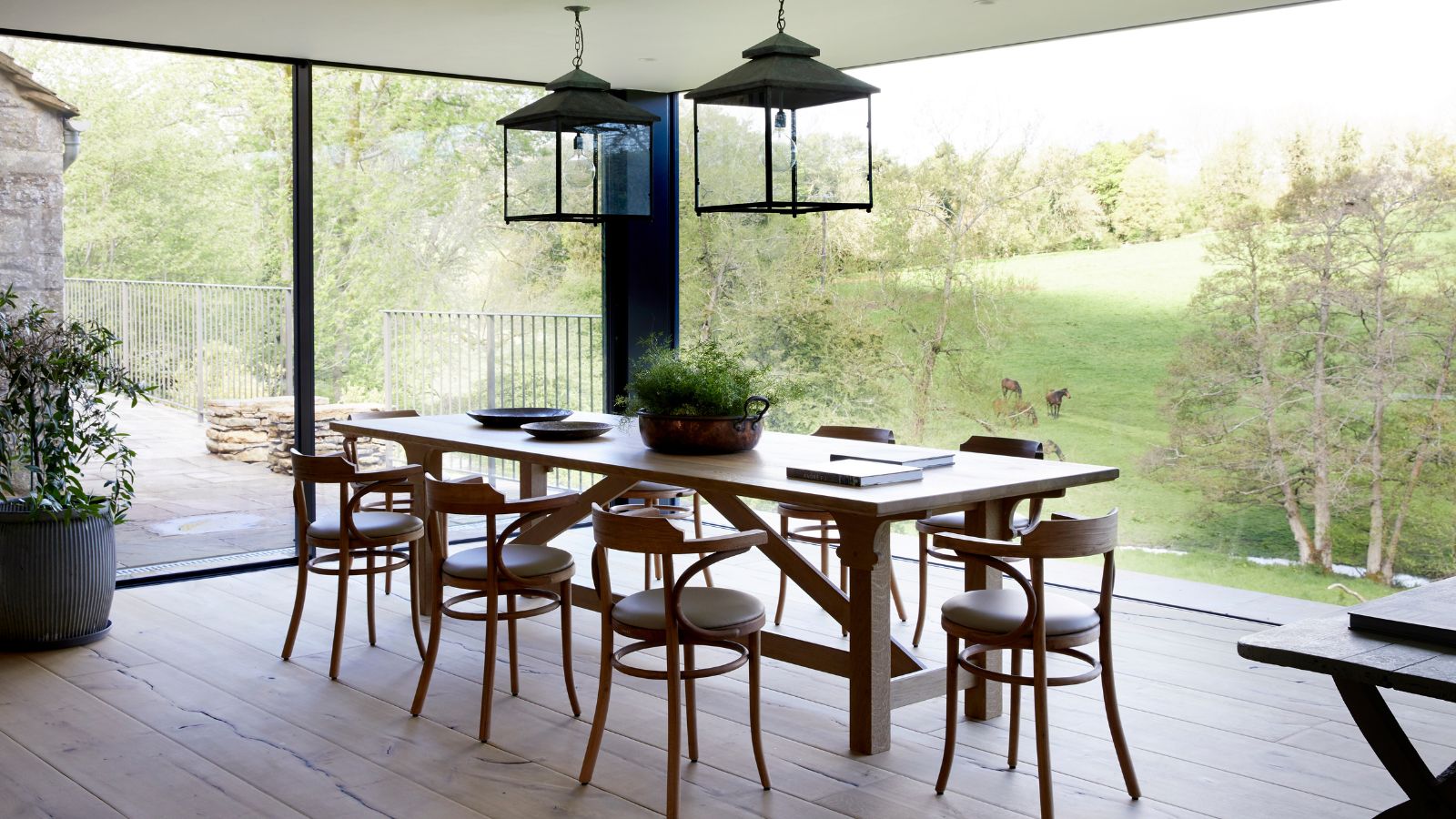 This is the single best upright vacuum we've ever tested – and it's on offer with $130 off at Shark for a limited time only
This is the single best upright vacuum we've ever tested – and it's on offer with $130 off at Shark for a limited time onlyYou won't want to miss this one
By Dan Fauzi
-
 Nate Berkus says slipcovered sofas are back on trend – and I just found a way to create this designer-approved laid-back look from just $86
Nate Berkus says slipcovered sofas are back on trend – and I just found a way to create this designer-approved laid-back look from just $86This classic style is making a strong comeback, but did you know you don't have to buy a whole new couch to get this Nate-approved look?
By Eleanor Richardson
-
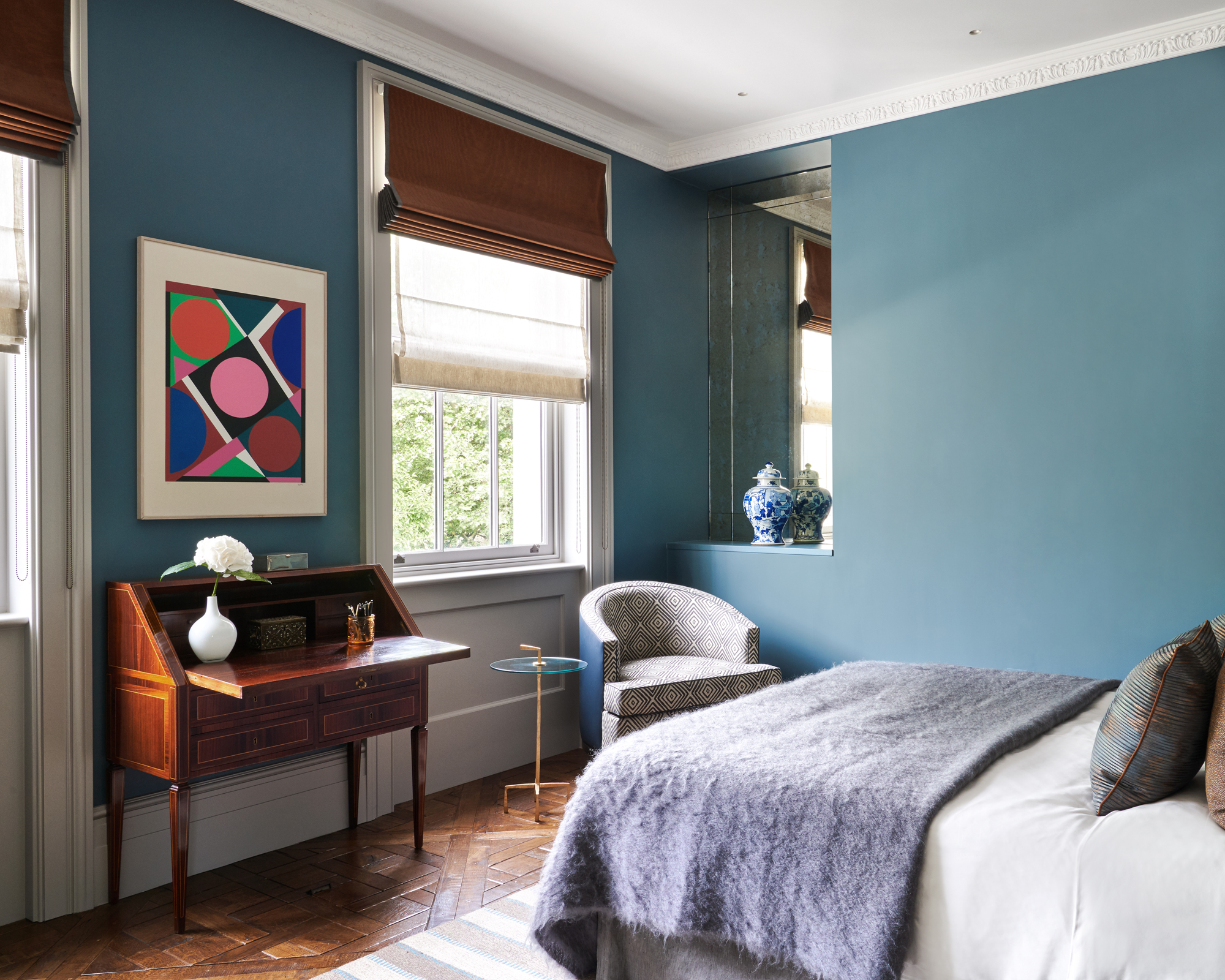 7 dorm room organizing rules for less clutter and more space
7 dorm room organizing rules for less clutter and more spaceExperts offer their top tips for creating a well-organized dorm room, no matter the size, space, or layout.
By Ashley Chalmers
-
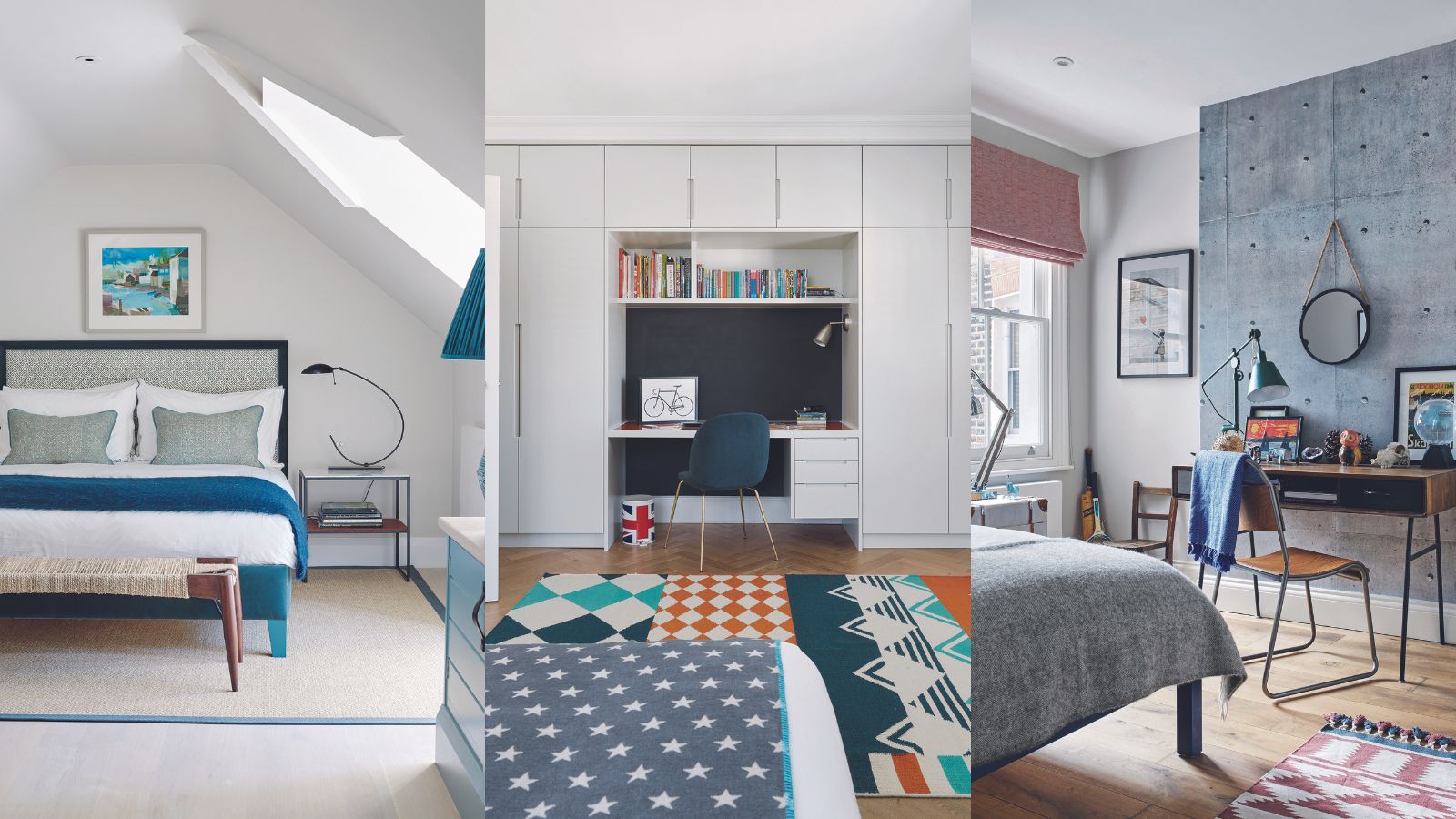 How to maximize storage in a small or shared dorm room, according to pro organizers
How to maximize storage in a small or shared dorm room, according to pro organizersFind out all the hidden storage zones you might never have noticed
By Ashley Chalmers